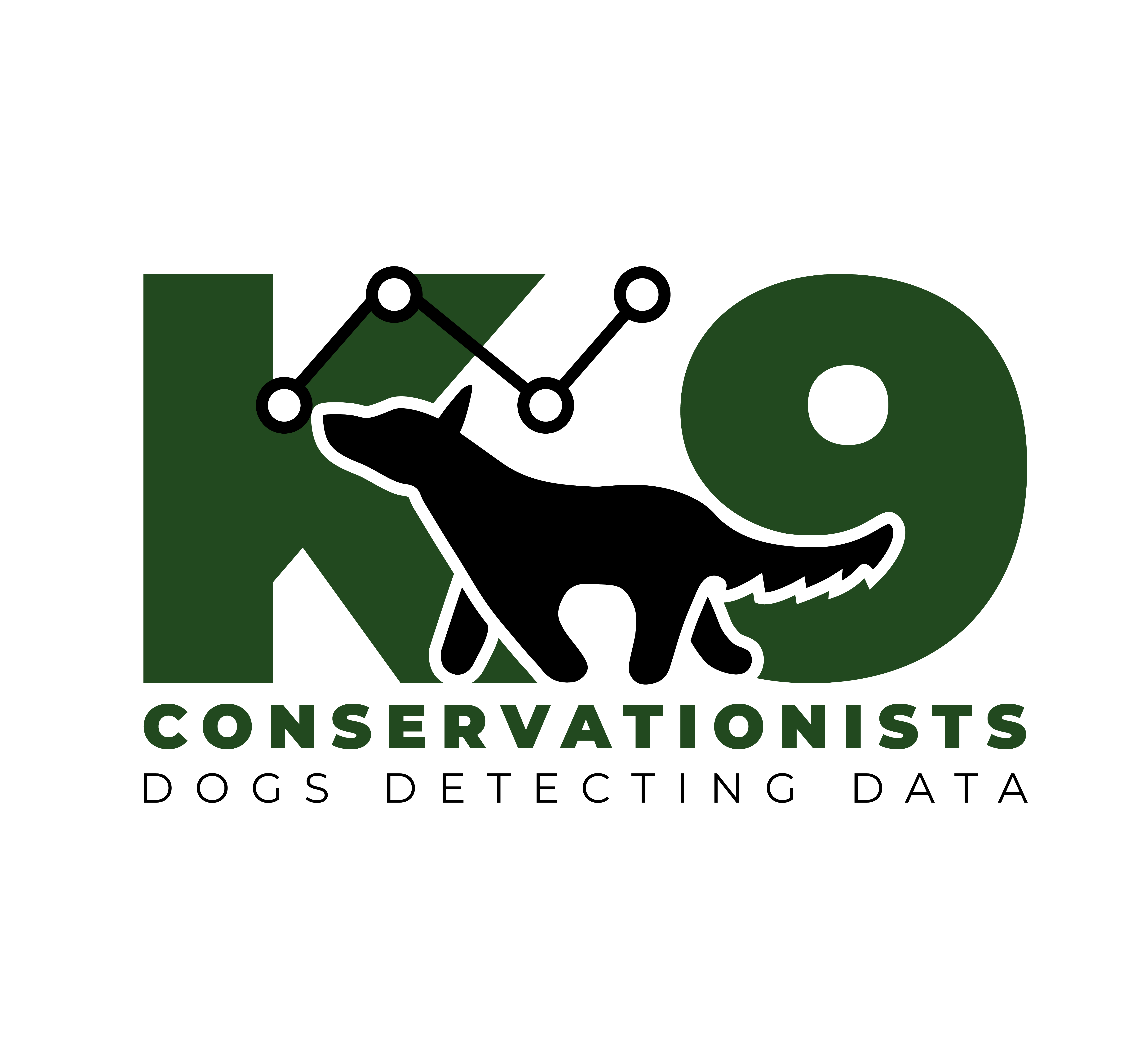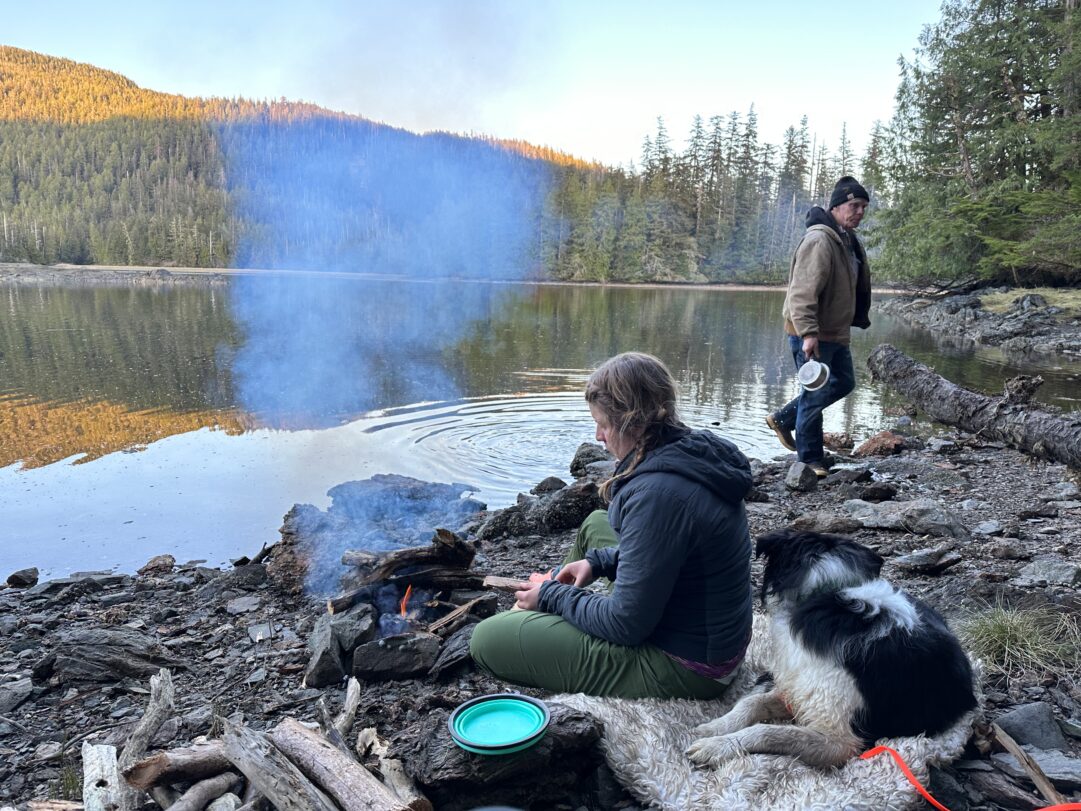From last time: We chatter as we clean up, ferrying gear back and forth and heating water to clean dishes. We are basking in the early morning sunlight, repeatedly remarking on the divine weather, when Michael hushes us. He points toward the head of the bay and hisses, “Wolf!”
Conversation halts mid-sentence and our eyes follow his finger to the shoreline. I hold my breath, watching a pale cream-and-gray wolf pick its way over the bladderwrack and barnacles. It glances our way a few times, perhaps catching our scent on the breeze. Toni passes me her binoculars as I stand rooted to the spot, unwilling to dig for mine lest the wolf fade back into the forest. It is so well-camouflaged as to be mirage-like, ghostly, momentarily disappearing if I take my eyes off of it. I had hoped to see wolves during this trip, but to see one our first morning! What luck! Eventually it rounds a stump and melts into the forest.
We return, dreamlike, to camp chores, glancing back to the shoreline every few moments lest a second wolf follow the first. Seeing none after several minutes, we break into gleeful exclamations of our fortune. We rearrange our packs, collect Barley, and get ready for the day. Michael will ferry us, one at a time, across the inlet in the inflatable dinghy. I am not entirely sure how Barley will do in such a small craft. I massage his hips and back, guide him through a few stretches, and suit him up with his bell, vest, and GPS collar. Dressed in his “work clothes,” Barley starts to whine and pace. Splayed whiskers and dilated pupils orbit around the field pack as he adjusts himself to stay near the precious toys; they are the sun and he is a planet. I double-check the radio, bear spray, spare batteries, rain gear, and treats. At every hand movement, Barley flinches forward, hoping that his toy will emerge. He quivers. Work, his favorite game in the world, is near.
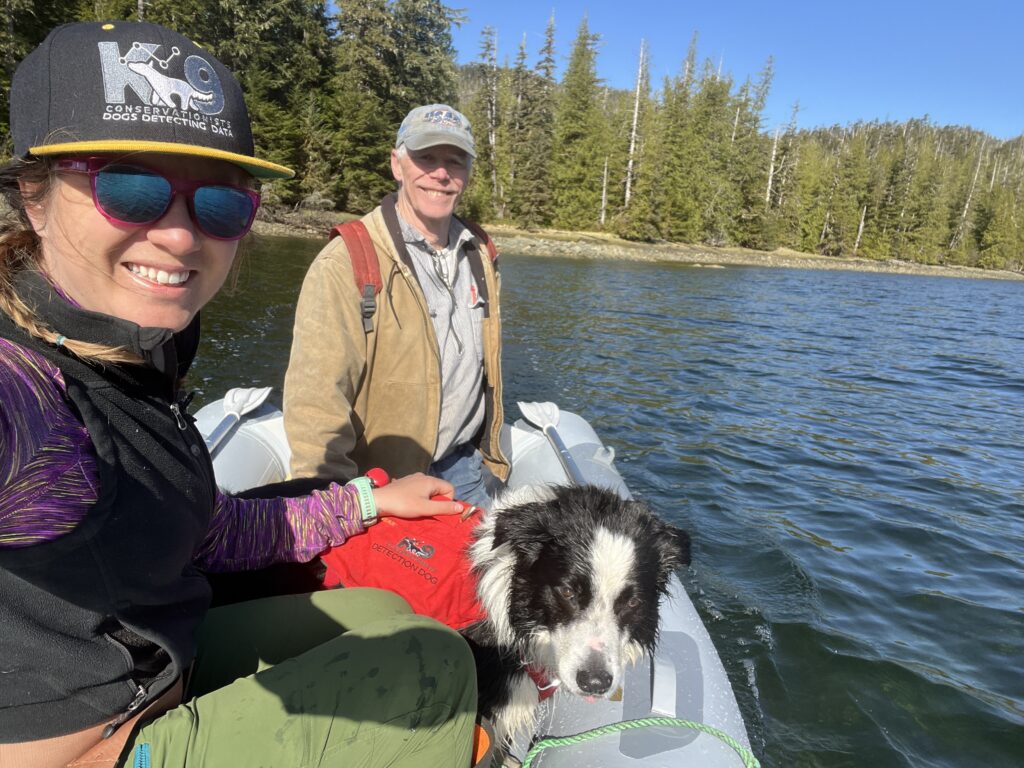
Michael shuttles Gretchen across first, then returns for us. Just in case Barley does something crazy like jumping overboard and trying to swim back to camp, I ask Toni to go last. To my surprise, Barley happily steps into the dinghy like he’s been doing it all his life. I perch on the rim, a hand on his harness, and off we go. It seems that his boat concerns have evaporated; he hasn’t hesitated or fussed again since.
I peer at endless underwater shells and a single deer jawbone in the glassy bay before we bump the shore. I pick my way to a smooth rock to wait for Toni and Michael. Barley follows, eyes still glued to my fanny pack. He scarcely breathes. The beloved Kavu bag has been his symbol to work since 2019; I bought it to celebrate my first job offer as a conservation dog handler. Finally it is time to start. Barley leaps up when I shoulder my pack, spiraling out with his nose low the moment I say, “Search.”
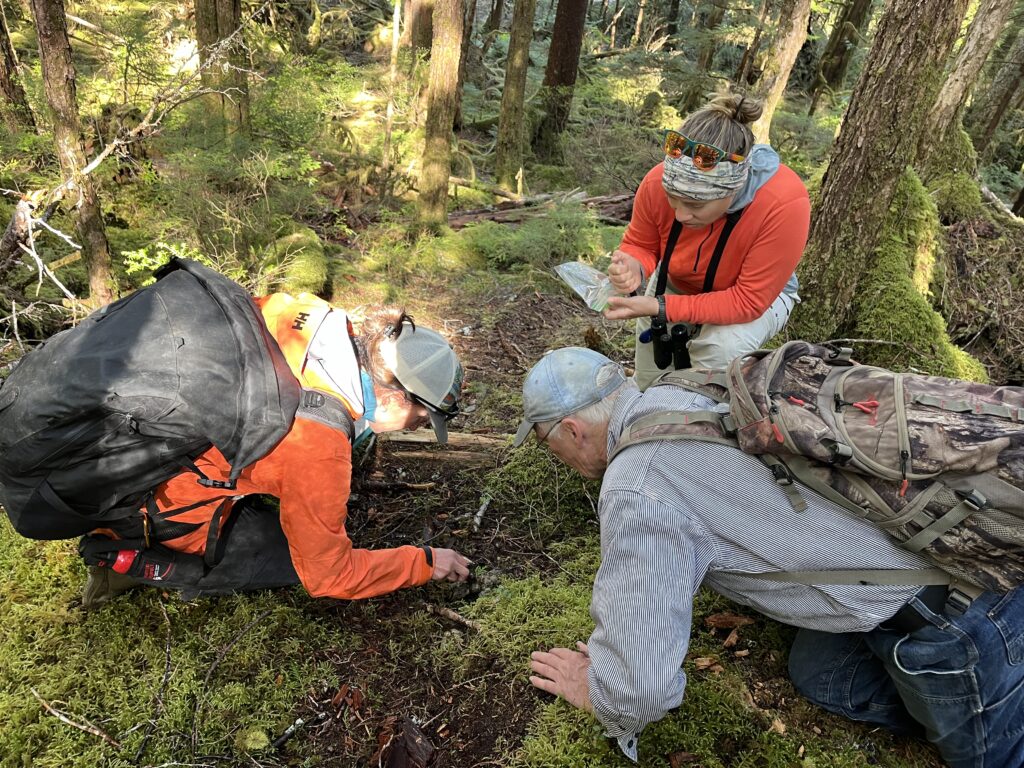
We negotiate the slick rocks and slicker kelp for a few minutes, taking tentative jabs at the wall of vegetation that rises just inland from the rock beach. The forest’s vanguard is unyielding, impenetrable. Michael angles towards a huge hemlock. At her base yawns a portal into the forest. We duck beneath her verdant skirts and emerge onto a game trail. Barely a foot across, the trail is only visible by the depressed moss. It weaves across the forest floor, here splitting, there petering out, here joined by a tributary.
Barley plunges into the portal at my heels, bringing up the read after circling to investigate one last pile of kelp. He drops to his belly at a spot all four humans had just passed. I backtrack, and just at the tip of his black nose is a gray stain. Lichen? No! Deer hair, bone shards, and a bit of fecal matter. Wolf poop! We won’t be able to genotype it, but DNA meta barcoding will allow us to identify the prey content. All four of us had walked right past it.
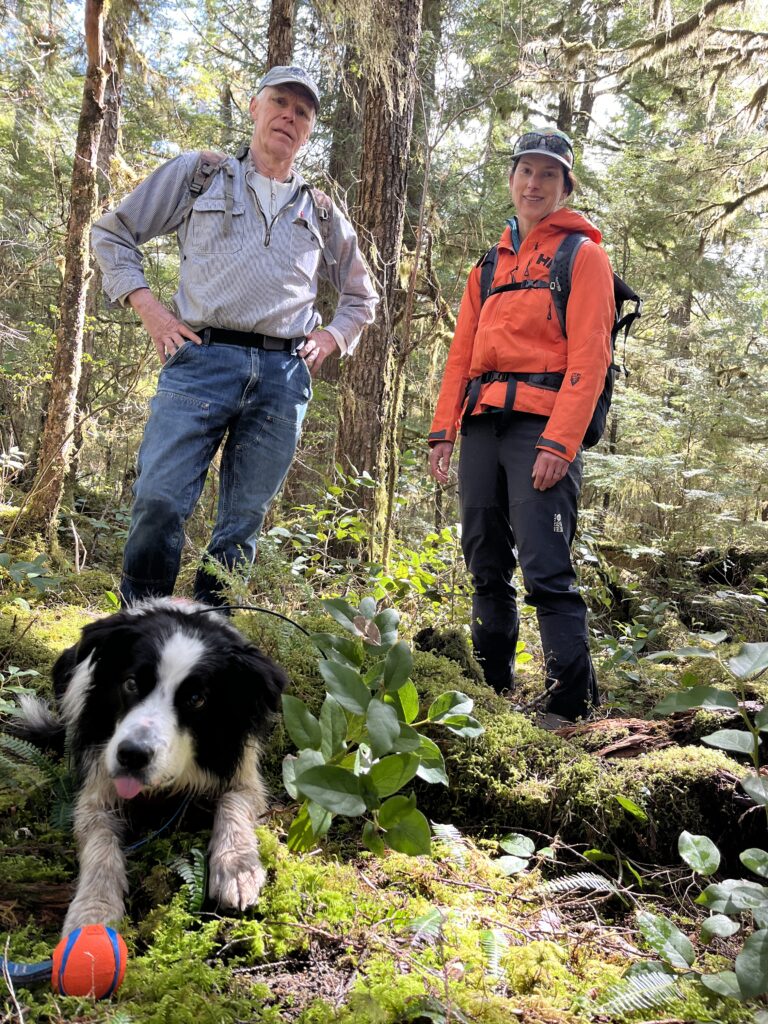
As we swim through the undergrowth, Barley points out scat after scat. We pass a series of snares, evidence that other locals have found this nearly invisible superhighway. We carefully pluck wolf scat from a few snares and scoop up teeth left where a wolf was butchered in a past trapping season. This sort of thing would normally bother me – I have been vegetarian for 12 years and am more interested in the emotional world of animals than eating them – but over the months of preparing for this project I have prepared myself for the realities of intensive trapping and local perceptions towards wolves.
At this moment, I am just here for the data. Dwelling on the ethics or efficacy predator suppression, or the fear and pain of a trapped wolf, will not help anyone right now. It is time to put my activist inclinations in a box and learn about the ecosystem. Instead I turn to joy and wonder and curiosity, rolling the dead wolf’s teeth over in my fingers and appreciating the sharp, clear clink they make against each other. They are wonderful, these gleaming white teeth. Back at Oregon State, we will extract wolfy DNA from the roots and learn about their owner. I feel the beauty in both nature and science.
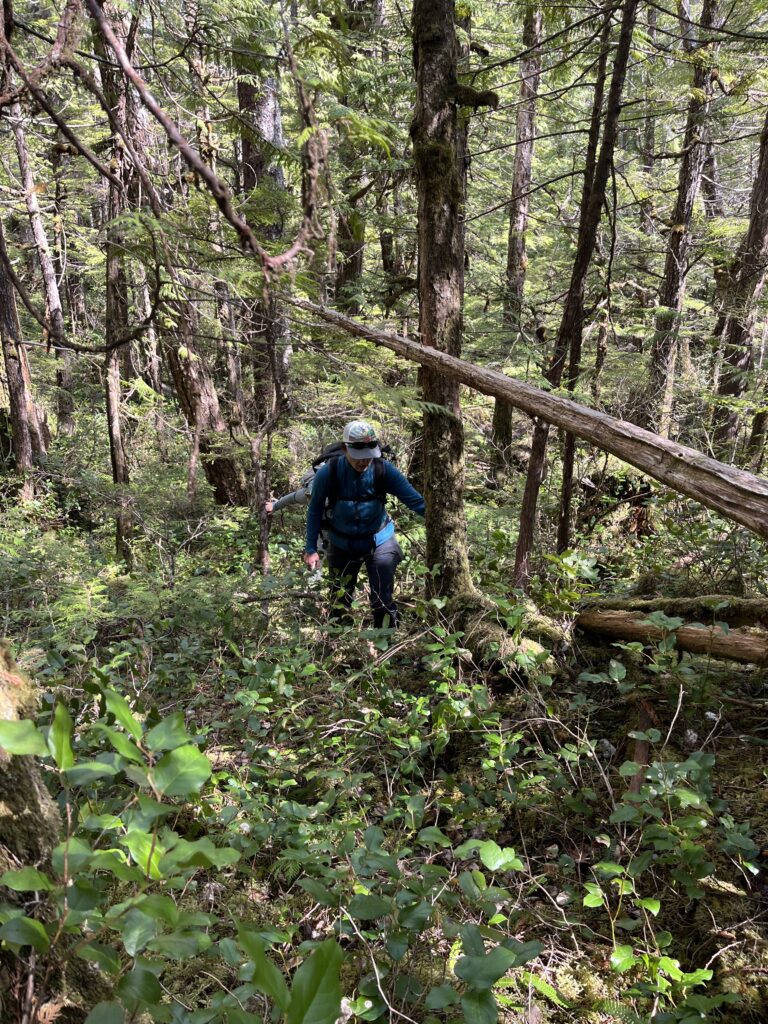
We press on and on, clambering over logs cloaked with moss that swallows your arm to the elbow and folding under logs bristling with broken-off branches that would be well-used as a backcountry home defense system. Unlike the two-legs, Barley traces the game trail with ease. After all, it was made by his distant cousins. He is overjoyed at the density of scats, the delicious scents of the forest, and the moss between his toes.
He readily takes water from my Camelbak and food from my hand, but all he wants is to hunt for the brown gold around the next bend. As we approach a potential den site, a stand of giant cedars along a stream, Barley repeatedly casts his nose up and into the wind. He dances at the edge of the stream, wanting to wade through the stream toward the cedars. He has scent, but we hang back.
There is very little reason to worry about the wolves giving us trouble, but letting a medium sized dog wander directly to a den site while pups are so young would be foolhardy at best. We previously agreed that Barley would not enter den sites unless we confirm the site is not active. As Gretchen leapfrogs across the stream, I let Barley resume his search in the grassy area this side of the water. He starts to circle, then brackets odor as he closes in on his quarry. Right at the stream’s edge, he disappears from view. He’s got a scat!
He pops up into a sit to watch me approach, supervising my every move as I deliver his precious ball-on-a-rope. I squeal in delight at the scat he’s found: it’s huge, dark, and fresh. Gretchen radios back to let us know the den is not in use but she has found a scat. After taking the required notes on Barley’s find, we wade across the stream to check the peninsula further. I misjudge a step and soak my boot, but who cares? We are on the hunt!
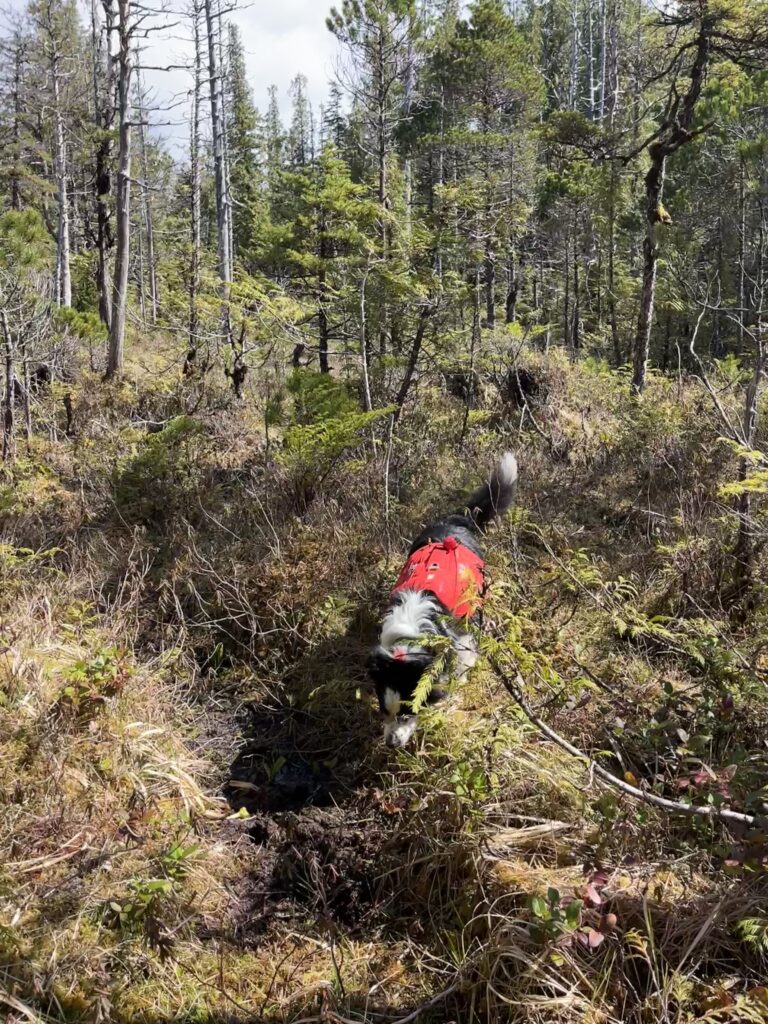
Barley finds three — or was it four? Five? — more scats in the area. We are ecstatic, but it is time to go home. We still have several miles of tough travel to get back to the dinghy. I decide to let Barley “quiet quit.” I stop giving him the cue to search, but don’t explicitly end the search. This allows him to stop casting and quartering and actively scenting, and is a system that works well for us.
He falls in behind me as we wade through the brush. He has one more spectacular find; a perfect specimen that we all missed by meters on the way out and back. I do not see him source the odor or alert; it all took place behind my back. But he sticks with the odor and his alert, and we throw him a huge party for that.
After nearly five hours of hard hiking and searching, we return to camp. I can’t decide if I’m more tired or hungry, but either way we still have several rounds of boat-unloading to do. So we get to work.
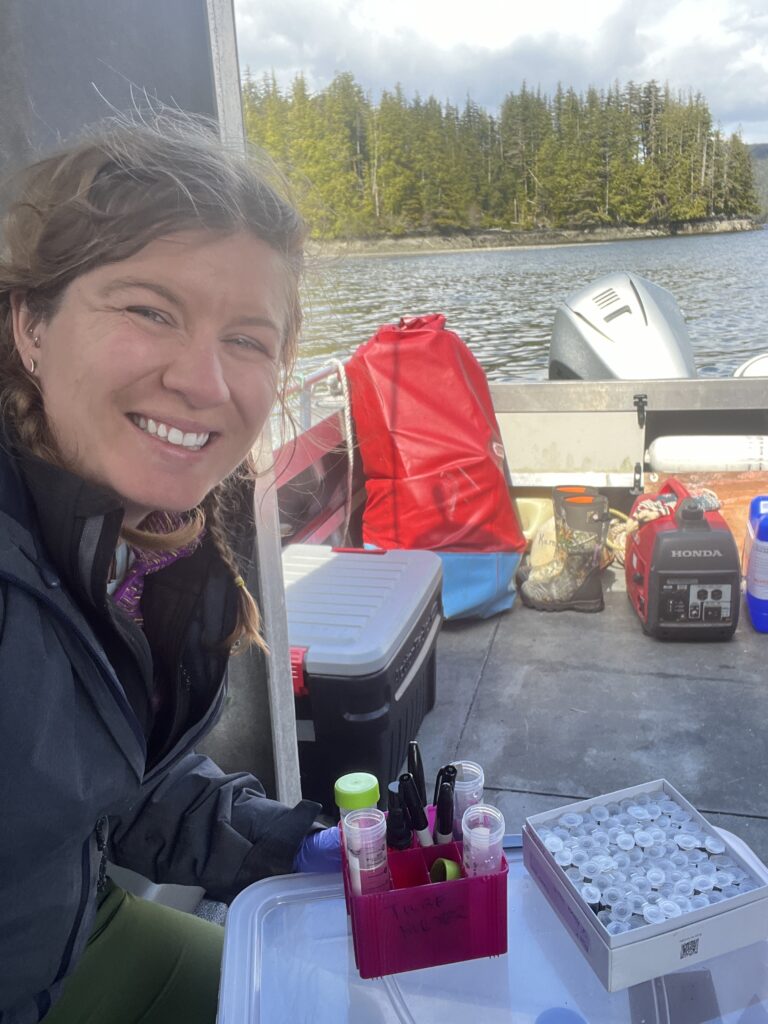
We move camp the next day, selecting search areas and campsites along the route home to conserve boat fuel. We check a few more potential den sites, leaving Barley behind on the boat for safety and rest. At one den site, I stay back with him and transfer the wolf scat into PCR tubes in our floating lab. We also search one super-productive coastal cedar group, where Barely finds six scats within a few meters of each other.
Our new campsite is, if anything, prettier than the last. Everything drips with moss and the bay is so still you can see the tides rippling in and out. I fight with soggy wood to make a smoky fire. No matter the smoke and frustration, a fire always makes me happy. One of the cedar logs is so fragrant when I cut it that I saw an extra round and demand everyone huff it in. Throughout the evening, I bring it to my nose every so often and breathe deeply. It is pure olfactory bliss. For the millionth time I wish I knew what Barley experiences in this mysterious world of scent. Toni is chef tonight, handing me crispy tortillas dripping with beans and cheese and veggies. Squatting over a fire with a wet dog snoring at my side, I might die of happiness.
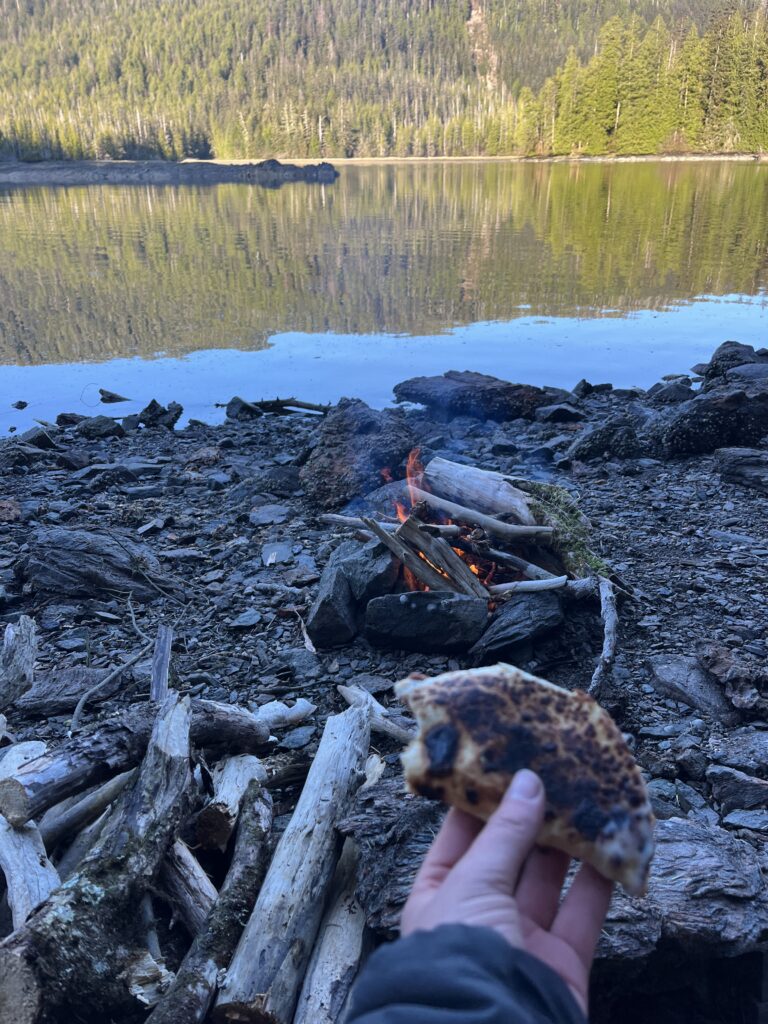
That night, Barley is once again very sore. In the tent I silently cry, splattering my journal with fat tears. I cry because I let the search expand into something painful for my best friend. I cry because I hate needing to reign him in. I cry because his body cannot do what his brain desires. I cry because he is mortal, and he is aging, and one day I will lose him. I cry all over again as I write this now. I am petrified of doing this job without him. I hate myself for letting him run himself so ragged. Stupid, irresponsible, selfish, egotistical, naive. I hate asking for help, hate requesting that others slow down or turn back or wait. And that deep-seated fear has caused my dog pain. Without realizing I’ve left the tent, I am back at the embers with gobs of snot running down my face. Barley was too tired to follow me out of the tent, which in itself causes a new tidal wave of fear and pain and guilt and worry. I curl into a ball by the fire, holding my head in my hands.
Finally I have cried the fear out. I am ready to start troubleshooting. What does Barley need to be comfortable and safe and happy all season? What can I control? What can I give him? What can I do for him? What can I change in our work plan to support him?
Now that I’ve cried and felt sorry for myself, it’s time to actually make my dog feel better.
I start a mental checklist. I know cold and hard ground are bad for his bad hip, so I’ll get him a nice fluffy dog bed and I will carry it to every single campsite. I will massage and stretch him and put his jacket on while his muscles are warm. Inflammation and pain can be addressed by several medications in our canine first aid kit — Galliprant, Gabapentin, Carprofen. Of all the activities we are doing, clambering and leaping over logs is the biggest problem. I can lift him over logs and guide him to flatter routes. We will avoid searching in big blow-downs and slash. I will leave him behind in the worst of the muskegs and ensure he gets more rest days. And next year, I will have Niffler as backup.
I fish a tablet of Carprofen from my pack and return to the tent. I gather all my soft things and make Barley a nest, cradling his sore muscles in down jackets and yesterday’s socks. I work my fingers down his spine and along his hamstrings, testing for tight spots. He quivers along his iliopsoas so I lighten up; that’s the muscle that’s given him trouble for five years. Funnily enough, I also have arthritis in my hips that started when I was young. I have hip dysplasia that causes frequent low-level pain and occasional debilitating flare-ups.
But right now, all my focus is on Barley. After rubbing the muscles warm, I gently extend his rear legs one at a time, rotating his legs to deepen the stretch. He is tighter than usual but not acutely painful. While I’m at it, I inspect his toes and nails. Still injury-free there. I adjust his insulated Ruffwear jacket and drape my parka over him for good measure. He barely stirs, snoring gently with his tongue poking out.
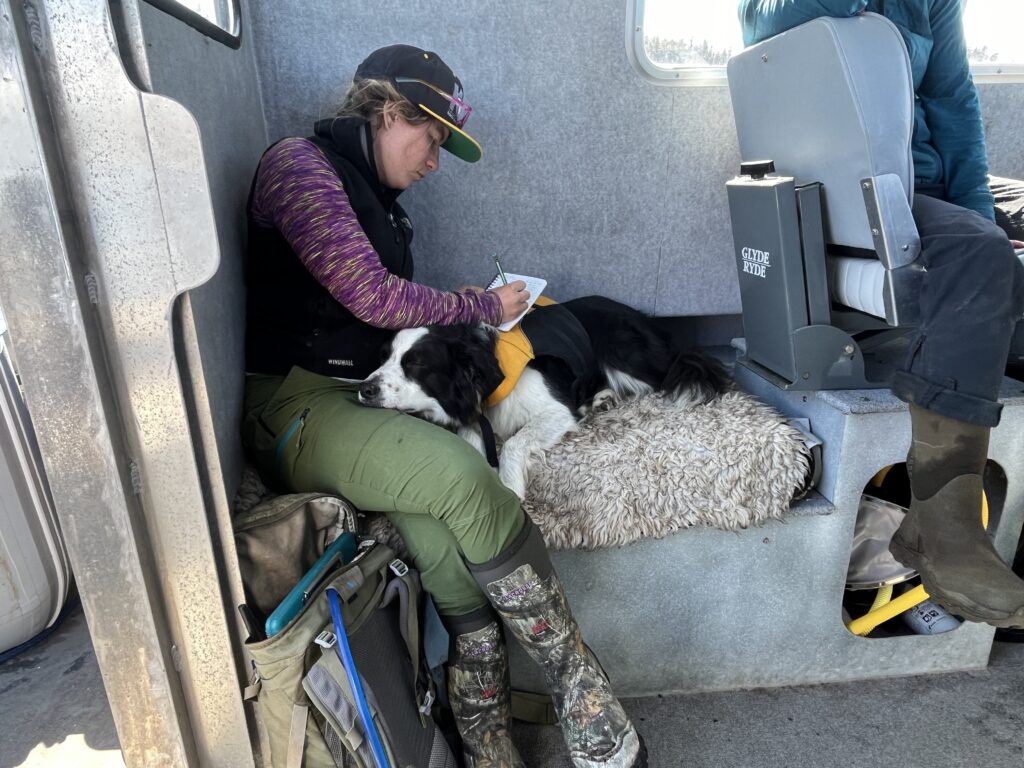
The next morning, before I let him stand, I repeat the massage and stretching, cycling between the two until I am happy with his range of motion. He is still tired when he stands. He pulls himself up with his front legs more than pushing with his hind, but he does not limp. Progress! Today is a rest day for him, as our only plan is to check potential den sites and return to Craig. On the boat ride home, he falls asleep half in my lap and I take notes using his lifejacket as a desk. The next day he will rest too, and we will see how he looks then.
We love to hear from you. Please share this post and ask us questions in the comments if you enjoyed this piece. It helps us know you’re there and feel inspired to continue sharing stories.
 Donate
Donate
